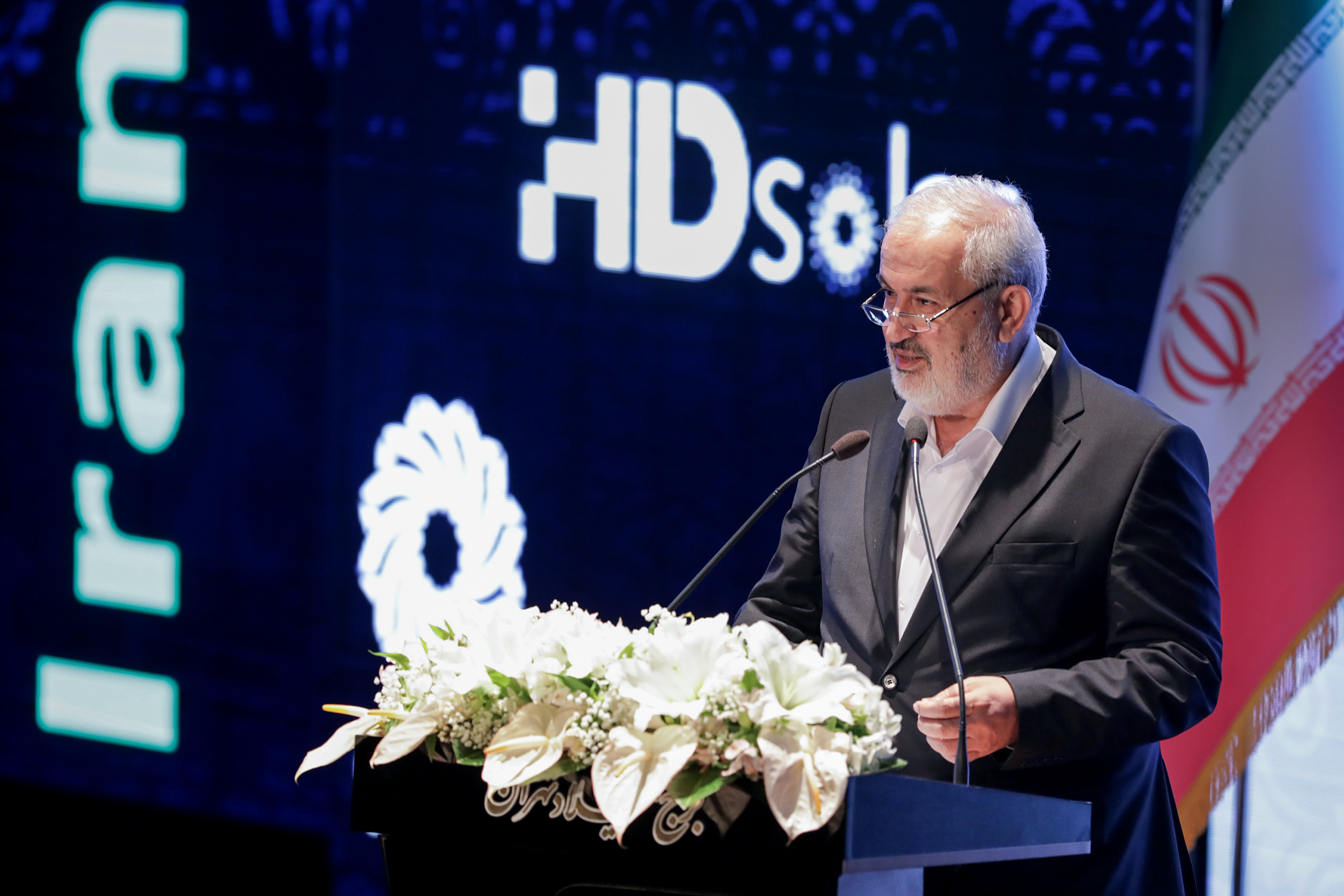At the 9th International Conference and 6th National Renewable Energy Awards, Iran’s Minister of Energy Abbas Aliabadi announced the launch of a special study program on green hydrogen, positioning it as a forward-looking solution in the country’s energy transition. Highlighting the critical role of green hydrogen alongside expanding renewables and energy storage, Aliabadi emphasized Iran’s commitment to integrating this clean technology into its long-term energy policies to drive sustainable growth and reduce environmental impact.
Abbas Aliabadi, at the 9th International Conference and 6th National Renewable Energy Awards of Iran, emphasized that the development of renewable energies is a serious priority for the 14th government and stated: “Accelerating progress in this field is a key agenda for the current administration.”
Referring to the Supreme Leader’s emphasis on the necessity of focusing on clean energy, he added: “The 14th government and the Ministry of Energy are committed to pursuing this overarching policy and have carried out precise planning in this regard.”
The Minister of Energy, noting that solving the electricity imbalance problem requires special support and coordinated planning, added: “Given the increasing role of electricity in the economic and social development of countries and the rising consumption trend, special developmental measures must be implemented in this sector.”
Aliabadi also highlighted the global importance of renewable energy, stating: “New definitions provided by international organizations emphasize the prominent role of renewable energies in the future of the world, and Iran must take extensive actions in this field in line with these developments.”
Referring to the current global electricity generation mix, he explained: “Currently, 59.1% of the world’s electricity is generated from fossil fuels and 40.9% from renewable sources. Forecasts indicate that by 2030, the global renewable electricity generation capacity will reach 5,500 gigawatts; this clearly shows that Iran must take serious and rapid steps along this path.”
The Minister of Energy identified the development of energy storage systems as the main complement to renewable energy expansion and added: “Without attention to energy storage infrastructure, the development of renewables will face serious challenges. Especially during low-demand hours, storage systems can play a key role in grid stability and reducing imbalances.”
He continued: “The Ministry of Energy has also launched a special study program on green hydrogen, which can serve as one of the forward-looking solutions in the country’s energy policies.”
Aliabadi further pointed to the Ministry’s efforts to facilitate the development of renewable energies, saying: “The main strategy of the Ministry of Energy in this field is to improve the business environment in the electricity industry and provide a platform for greater private sector participation.” He emphasized: “The possibility of building renewable power plants using the capacity of Article 12 of the Law for Removing Production Barriers, launching the Green Board on the Energy Exchange, constructing solar power plants by industries through barter, developing renewable farms for legal cryptocurrency mining, and utilizing the capacity of Article 61 of the Consumption Pattern Reform Law are among the Ministry’s measures to facilitate renewable energy development.”
The Minister of Energy, referring to the growth of installed renewable capacity during the 14th government, stated: “Currently, the country’s installed renewable energy capacity has reached 1,710 megawatts, of which 514 megawatts—equivalent to 44% of the total existing capacity—have been brought online in the past 10 months under the new government.”
He added that there are currently applicants for 80,000 megawatts of renewable electricity production capacity in the country and said: “The Ministry of Energy is seriously pursuing contract and memorandum of understanding signings for the construction of solar power plants, and applicants who have not started their activities will be replaced as soon as possible to ensure the development process continues without interruption.”






